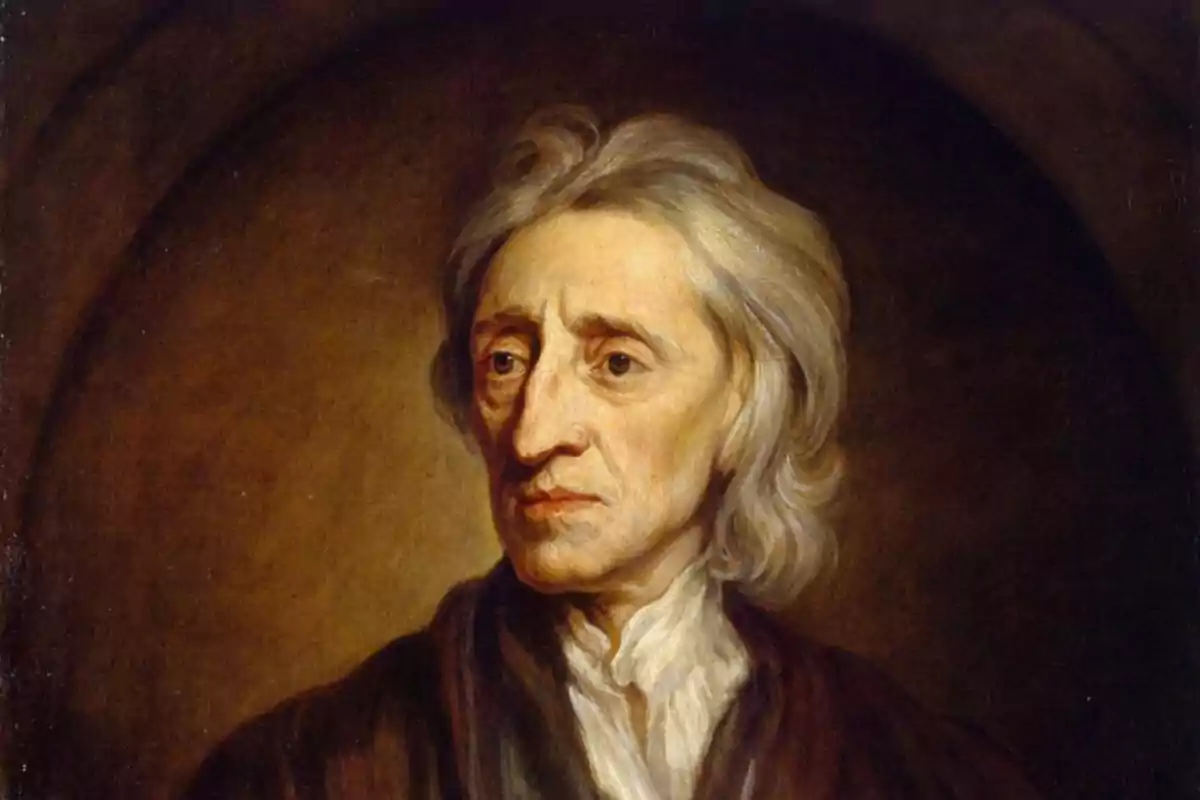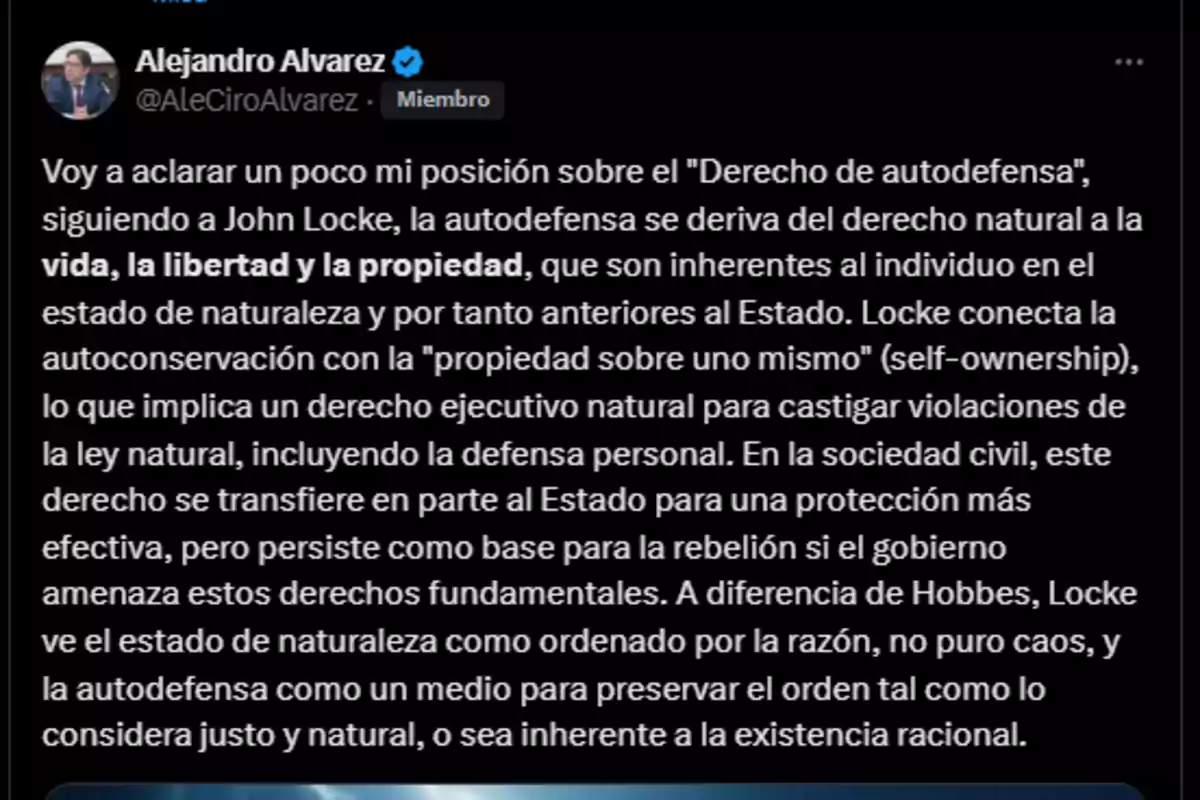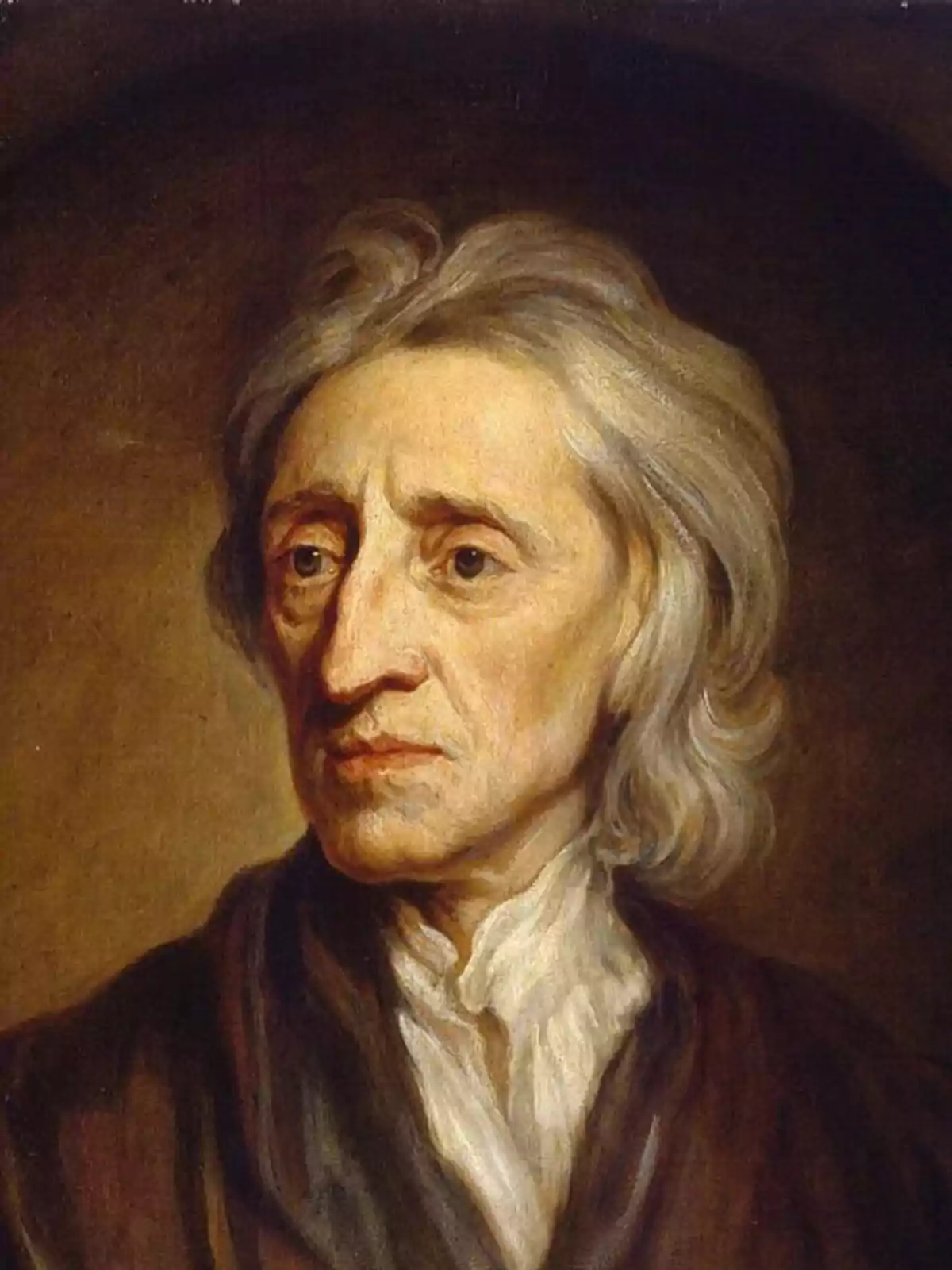
Self-defense: The natural right that liberalism doesn't negotiate
The Undersecretary of National University Policies, Alejandro Álvarez, recalled John Locke's view on self-defense
The Undersecretary of University Policies of the Nation, Alejandro Álvarez, recalled John Locke's vision of self-defense as part of natural law. From classical liberalism to contemporary authors, the conclusion is clear: without this right, freedom is impossible.
In a context where governments seek to expand their control over people's lives, the Undersecretary of University Policies of the Nation, Alejandro Álvarez, revived a key debate for liberalism: the right to self-defense.
In a recent post, Álvarez explained that, following John Locke, "self-defense derives from the natural right to life, liberty, and property, which are inherent to the individual in the state of nature." He linked this idea to self-ownership or "ownership over oneself," a principle that holds that each person owns their body and destiny, and therefore has a natural right to punish violations of natural law, including personal defense.

Far from justifying indiscriminate violence, Locke understood self-defense as a way to preserve legitimate order. Unlike Thomas Hobbes, who saw the state of nature as pure chaos, Locke considered it a state regulated by reason. The power to defend oneself doesn't disappear upon entering civil society: it is partially delegated to the State to ensure greater effectiveness, but it persists as a legitimate basis for resistance if the government becomes oppressive.
This view was shared by other classics of liberalism. Frédéric Bastiat, in The Law (1850), wrote: "The law is the collective organization of the individual right to legitimate defense."For Bastiat,if the State exists to protect life, liberty, and property, then defending these goods is not only a right, but a moral duty. The Second Amendment to the United States Constitution (1791) embraced the same idea, recognizing "the right of the people to keep and bear arms" as a safeguard against tyranny, not as a privilege for sport hunting.

Contemporary thinkers have also defended this principle. Murray Rothbard argued that "the right to self-defense is the application of the right of property to one's own person" and that prohibiting it amounts to legitimizing aggression. For Robert Nozick, the minimal function of the State is to protect against force, fraud, and theft; if individuals are not even allowed to defend themselves, the State ceases to be a protector and becomes an accomplice of aggressors. Thomas Sowell has been blunt: "When law-abiding citizens are disarmed and criminals are not, the result is not more security, but more victims."
As Álvarez recalled,Locke linked this right to the possibility of rebelling against a government that threatens essential rights. This idea functions as a political limit: the State exists to protect rights, not to destroy them. When self-defense is annulled, the State is given unchecked power.
History confirms the risk. In Nazi Germany, the 1938 gun control laws facilitated the persecution of minorities and opponents. In the Soviet Union, the state monopoly on force sealed the fate of millions of people. In both cases, civilian disarmament was the prelude to totalitarianism.

The modern discourse that promotes the state monopoly on security is often presented as a guarantee of peace, but the reality is different. Countries such as the United Kingdom and Australia, after banning almost all gun ownership, did not eradicate crime, but rather left the population more exposed to criminals who do not respect the law. In Latin America, where governments can't guarantee basic security, civilian disarmament borders on the absurd: "We can't protect you, but we will not let you protect yourself either".
Álvarez's reminder about Locke is, at its core, a political call: the right to self-defense is inseparable from the condition of being a free citizen. Renouncing it means depending on the goodwill of those in power, a gamble that history has shown to be dangerous. Self-ownership implies that one owns their body and life, and that no legitimate government can prohibit defending them. This line unites Locke with Nozick, Bastiat with Rothbard, and the Founding Fathers with those who today warn against disarmament.
The image that accompanied Álvarez's message—a man with a sword and shield, standing against the threat—is the perfect metaphor: it represents the individual who doesn't completely surrender their capacity for defense to political power. The right to self-defense, understood as part of natural law, remains the last barrier between freedom and servitude. When a government seeks to suppress it, what it really seeks is a people of subjects, not citizens. There, as Locke and so many others taught, the duty to resist begins.
More posts: